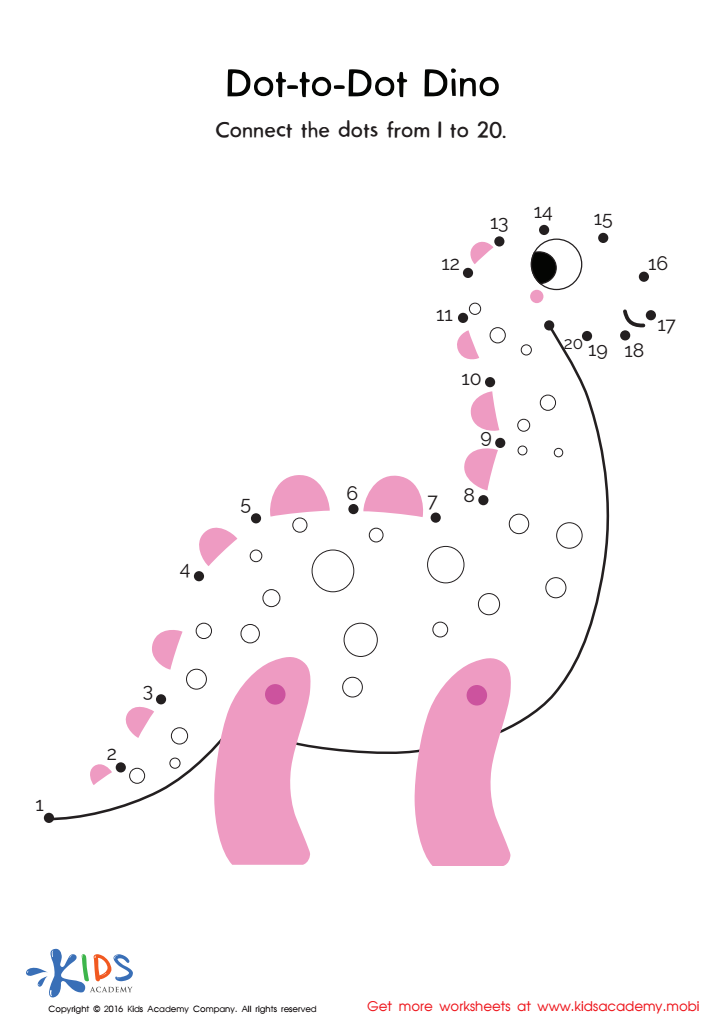Easy Dinosaurs Day worksheets activities for Ages 4-8
5 filtered results
-
From - To
Welcome to our "Easy Dinosaurs Day Worksheets Activities" designed specifically for children aged 4-8! Our engaging and colorful worksheets provide a fun way for young learners to explore their love for dinosaurs while developing essential skills. From exciting dinosaur-themed puzzles to creative coloring pages, each activity promotes critical thinking, fine motor skills, and early literacy in a playful setting. Perfect for homeschoolers, teachers, or family activities, these worksheets are an excellent resource for sparking a child's imagination and curiosity about prehistoric creatures. Join us in celebrating Dinosaurs Day with educational fun that children will love! Explore our collection today!
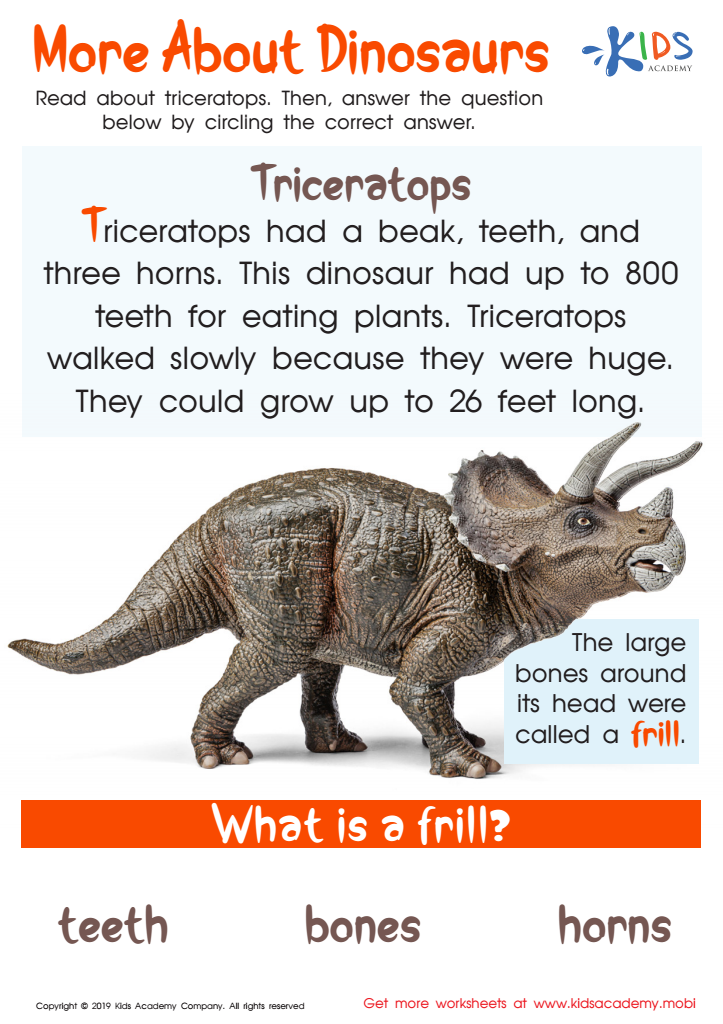

More About Dinosaurs Worksheet
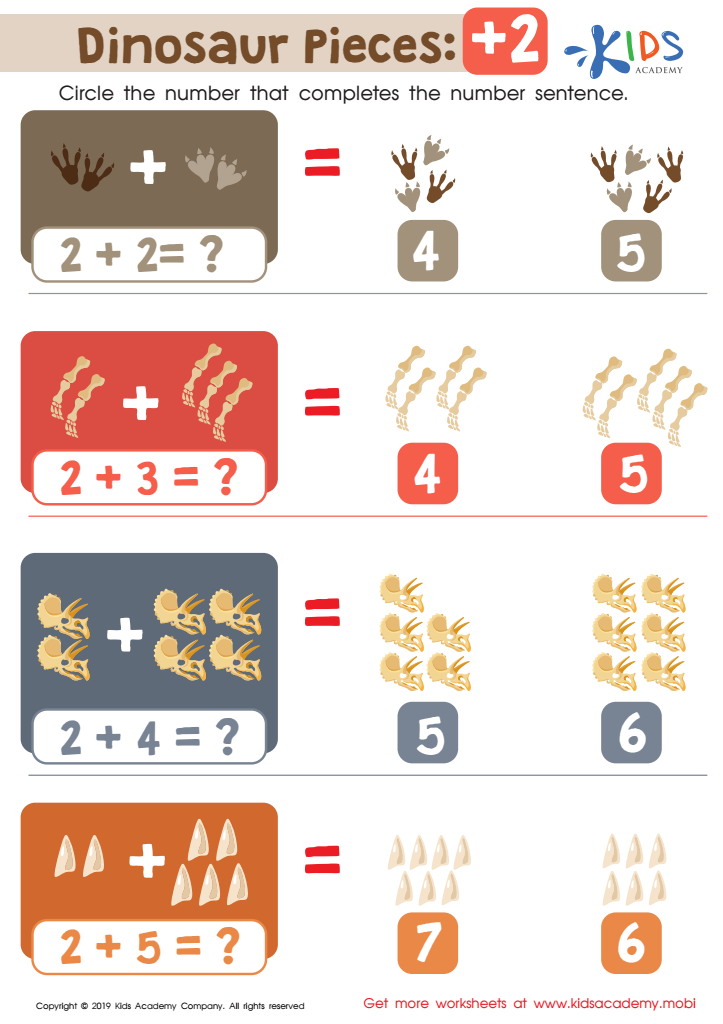

Dinosaur Pieces: +2 Worksheet
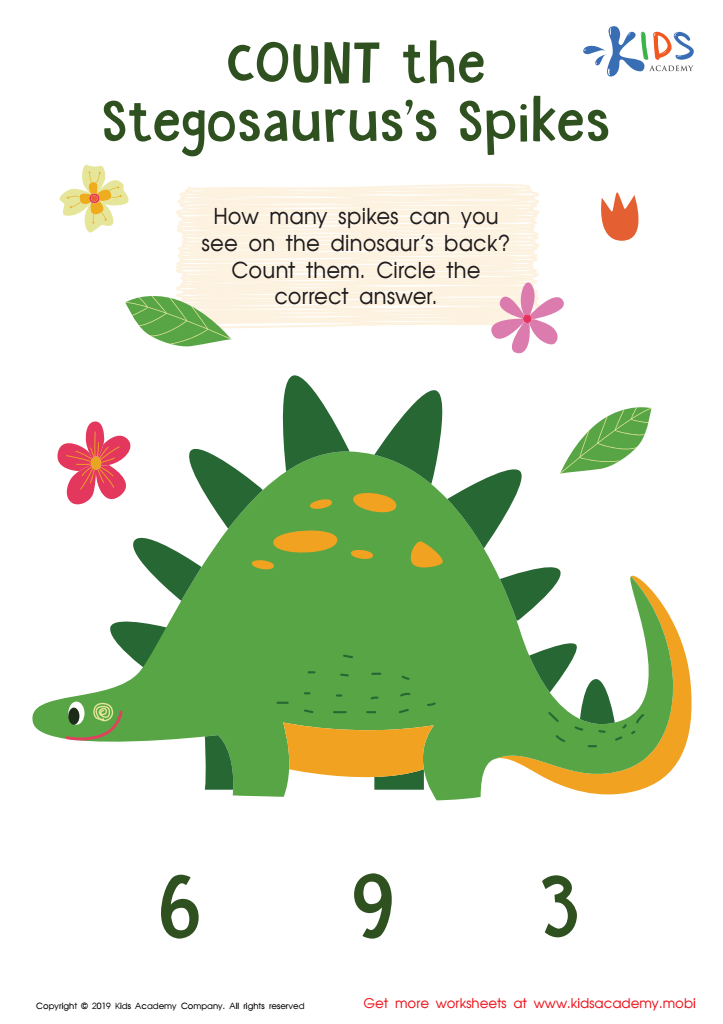

Count the Stegosaurus's Spikes Worksheet
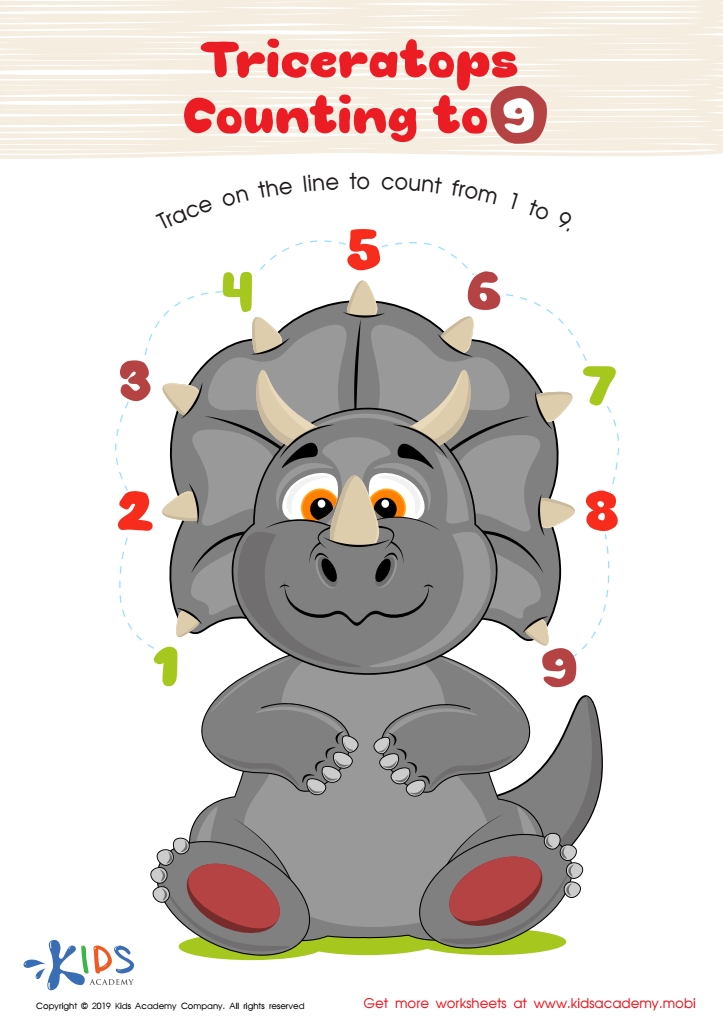

Triceratops Counting to 9 Worksheet
Easy Dinosaurs Day activities for ages 4-8 offer a dynamic way for parents and teachers to engage with young learners in a fun, educational context. Dinosaurs have a unique appeal that captures children's imaginations, providing an excellent opportunity to enhance their learning experiences.
First, these activities promote creativity and critical thinking. Children can explore imaginative play through art projects, storytelling, and interactive games centered around dinosaurs, fostering their ability to think outside the box. This age group thrives in hands-on learning environments, and dinosaur themes naturally lend themselves to tactile exploration with fossils and scientific experiments.
Additionally, such activities are an effective vehicle for teaching foundational concepts in science, history, and literacy. Children can learn about the prehistoric world, conduct simple experiments to understand fossils, and develop reading comprehension skills through stories about dinosaurs.
Moreover, celebrating a themed day can strengthen community bonds; parents and teachers can work together to organize engaging activities, instilling teamwork processes among children. By attending to such engaging themes, educators and parents support social development, promote curiosity about the world, and create lasting positive memories about learning—all fundamental components in a young child's education.
 Assign to My Students
Assign to My Students
